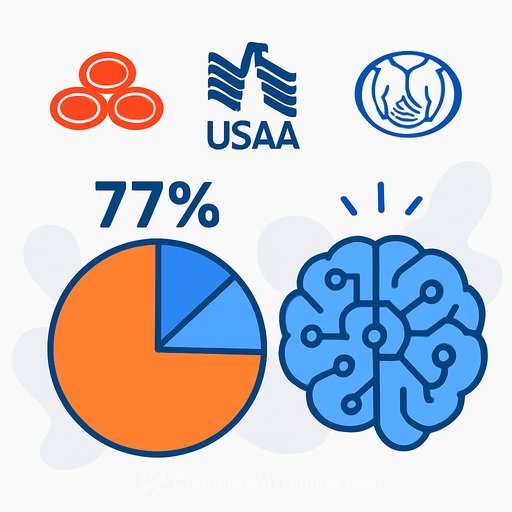Colorado Lawmakers Face $800 Million Budget Gap in Special Session
Colorado's legislature is preparing for a special session to address a looming budget shortfall of nearly $800 million. While only a few proposed bills directly tackle the deficit, lawmakers are also focusing on pressing issues like health insurance premium hikes, tax policies, and artificial intelligence (AI) regulations.
Democrats, who hold the majority, attribute the budget gap largely to federal budget cuts, specifically Medicaid reductions and tax code changes under President Donald Trump’s administration. Republicans argue that state spending habits are equally responsible, pointing out that Colorado had a $1 billion deficit earlier in the year before the federal budget was passed.
Key Bills on the Table
Artificial Intelligence Regulations
- AI Regulation Delay and Exemptions: Republican Rep. Ron Weinberg introduced a bill to delay new AI regulations until August 2027. The proposal also exempts smaller businesses (under 250 employees or $5 million in revenue) and local governments with fewer than 100,000 residents from these rules.
- Consumer Protections: SB25-0013 requires AI systems to comply with Colorado’s Consumer Protection Act. It mandates notifying consumers when AI is in use and empowers the Attorney General to act against violations. This bill was introduced by a bipartisan group of representatives.
- Repeal of Original AI Bill: Sen. Mark Baisey seeks to repeal the 2024 AI regulation bill, arguing existing laws already address discrimination concerns.
- Revised AI Oversight: Sen. Robert Rodriguez, original sponsor of the 2024 AI bill, has proposed a bill that largely restates the prior regulations with minor adjustments.
Health Care and Insurance Initiatives
- Health Savings Account Tax Credits: A bill by Republican Sen. John Carson offers tax credits equal to 25% of contributions to health savings accounts, capped at $500 for singles and $1,000 for joint filers.
- Subsidy Eligibility Restrictions: Republicans propose narrowing eligibility for state health insurance subsidies to exclude undocumented residents and individuals ineligible for federal benefits.
- Health Insurance Board Representation: Legislation aims to ensure rural representation on the Health Insurance Affordability Board, emphasizing the importance of diverse geographic input.
- Expanded Preventative Care: A Democratic bill authorizes certain providers to deliver specific low-level preventative services within their scope of practice.
- Abortion and Medicaid Funding Guidance: Proposed advisory guidelines would help providers prioritize care continuity for communities disproportionately affected by federal Medicaid restrictions, especially rural and low-income populations.
- Pharmacy Benefit Manager Transparency: Legislation seeks to prohibit pharmacy benefit managers from providing false or misleading information to employers or plan sponsors.
- Insurance Premium Tax Credits and Adjustments: Multiple bills propose issuing premium tax credits to insurers, repealing certain tax expenditure benefits, and reevaluating fund allocations to prioritize reducing premium increases for individuals in the marketplace.
Budget and Tax Measures
- Wolf Program Funding Cut: A bill reduces funding for the wolf reintroduction program by over $264,000 in the current fiscal year.
- Governor’s Spending Cut Authority: One proposal requires the governor to notify the Joint Budget Committee promptly when issuing spending reductions, allowing the committee to advise on the plan.
- Changes to Spending Reduction Procedures: Republicans seek to tighten requirements on the governor’s ability to reduce spending, including mandatory consultation with budget committees and cuts tied to revenue estimates.
- Repeal of Governor’s Cash Fund Authority: A bill aims to revoke the governor’s power to use state funds for legal defense and related activities against federal government actions.
- Sales Tax Vendor Fees: Competing bills from both parties address vendor fees retained by retailers, with GOP lawmakers proposing an increase in maximum fees retained and Democrats seeking to eliminate them entirely.
- Voter Approval on Vendor Fees: Another Republican bill would put the decision on vendor fee reductions to a statewide vote as a constitutional amendment.
- Federal Income Tax Adjustments: A bill repeals the requirement to add certain overtime compensation back into state taxable income, subject to voter approval.
- Corporate Tax Presumptions: Legislation permits the Department of Revenue to determine if corporations are incorporated in listed foreign jurisdictions without requiring proof from the corporation.
- Qualified Business Income Deduction: Democrats propose continuing the requirement that certain taxpayers add back the federal qualified business income deduction to state taxable income indefinitely.
- State-Only Funding for Certain Health Entities: A bill mandates that some healthcare providers ineligible for federal Medicaid reimbursement be paid solely with state funds, retroactive to July 1.
- Free School Meals Funding: To address a $50 million funding gap attributed to federal budget cuts, a bill modifies a voter ballot question to increase state funding for free school meals.
Implications for Insurance Professionals
Several of these bills directly impact the insurance industry, particularly those addressing health insurance premiums, subsidies, and regulatory oversight. The debates around premium tax credits, subsidy eligibility, and spending priorities signal potential changes in the cost and accessibility of health insurance in Colorado.
Additionally, AI legislation could affect how insurance companies deploy artificial intelligence tools, especially regarding consumer transparency and regulatory compliance. Staying informed about these developments is crucial for insurance professionals advising clients or managing risk.
For those interested in expanding their knowledge of artificial intelligence and its applications in business and insurance, Complete AI Training offers relevant courses that cover emerging AI regulations and practical implementation.
Your membership also unlocks:






